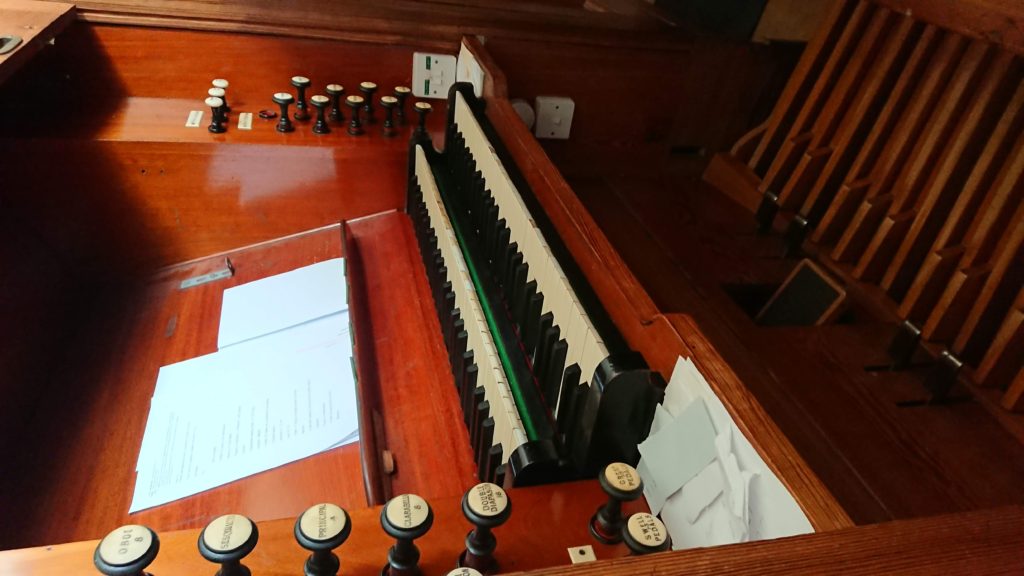Dear Benedict,
I am writing to you. It’s one of my occupations. I’m not sure if it’s one of my roles but that’s what I’m going to write to you about today. The bible reading/remembering today was the story of Martha and Mary. Well, actually a small bit of it. Like most of the gospel we only get small snippets of information into the daily life of Jesus and those who followed.
Everyone in a family has their roles, so too anyone in a community and your Rule has loads on that. But most of all you say it’s not competitive. For example, when the Deans are chosen in chapter 21, it’s for wisdom not rank. Yet as humans we are obsessed with competition. So too with interpreting Martha and Mary. In Luke’s words even Jesus gets hung up on it: Mary has chosen the better part.

I’m suspicious about the gospels (or any religious text really). Luke is seen as a ‘good editor’ for women so why did he write this nasty little snippet in which Martha understandably gets upset when tired and Mary gets commended for the better part which ‘won’t be take away from her’ but ultimately is (i.e. women are stripped of their right to equal discipleship by the Church)? There are a few options but most have the get out clause: sexists society, sexist Jesus.
John comes in later with a different snippet on the family: Lazarus dead, Mary grieving and Martha announcing Jesus as ‘The One’. Different tensions, different words, but still the roles get taken away. Whatever way you look at it, Martha and Mary do not come out of the written gospels with their roles as equal disciples with the named male disciples in tact, at least according to traidtional Church Theology.
Today I played the unassailable role of organist at the small church in the village. Anyone can preach (today my husband) but not everyone can play the organ. Most of the year now it stands in the corner gathering dust. I can play it. I learnt years ago and it still gives me a huge lift in my mood to sit there and thunder out a good tune (even if I do it rather poorly). So you’d think I’d be happy, and certainly as small communities go this is a delightful one.

But I’m still left with my Martha and Mary questions and much besides about roles in any community. There have been and will be many wise ones who will not be appointed to appropriate roles because someone else will get the job due to bribery, favouritism, phobias and other corruptions. Even in the death defying communities that the church is supposed to be, the status quo will predominate. Someone will be slow to embrace change and that will trip us all up.
In my rememberings of Martha and Mary they were carers for Lazarus, the non speaking member of the family who died in unspoken circumstances: the one who gets called out from his own tomb by the Tomb Quitter. These two sisters knew each other well and if 1st century caring is anything like 21st century caring they were both exhausted. One makes and bakes, another sits and listens: roles should be made for us but in family, or community, life is not always like that. Even Jesus struggles to hold the tension together, making promises about discipleship that the Church will eventually fail to honour for centuries.
There was a moment in my organing this morning when I pulled out the trumpet stop in the middle of a verse and blasted it out, because it had all got too comfortable. We were singing ‘Jesus Christ is waiting’ and that moment where it says in the lyrics ‘I am angry too’ we all sounded too nice. This was my ‘hymn of the pandemic’ and I’m still angry, so I let an 8 foot trumpet rip for a couple of lines and felt better. It’s probably a sign that I am completely unsuited to any role in community.

From my remembered bible: ‘I am like a green olive tree’ (Psalm 52: they are known for longevity in harsh climates).
I am angry too!
From a Friend of Scholastic and a Member of the Lay Community of St Benedict.
Janet Lees: 17.07.2022, in Longdendale.


